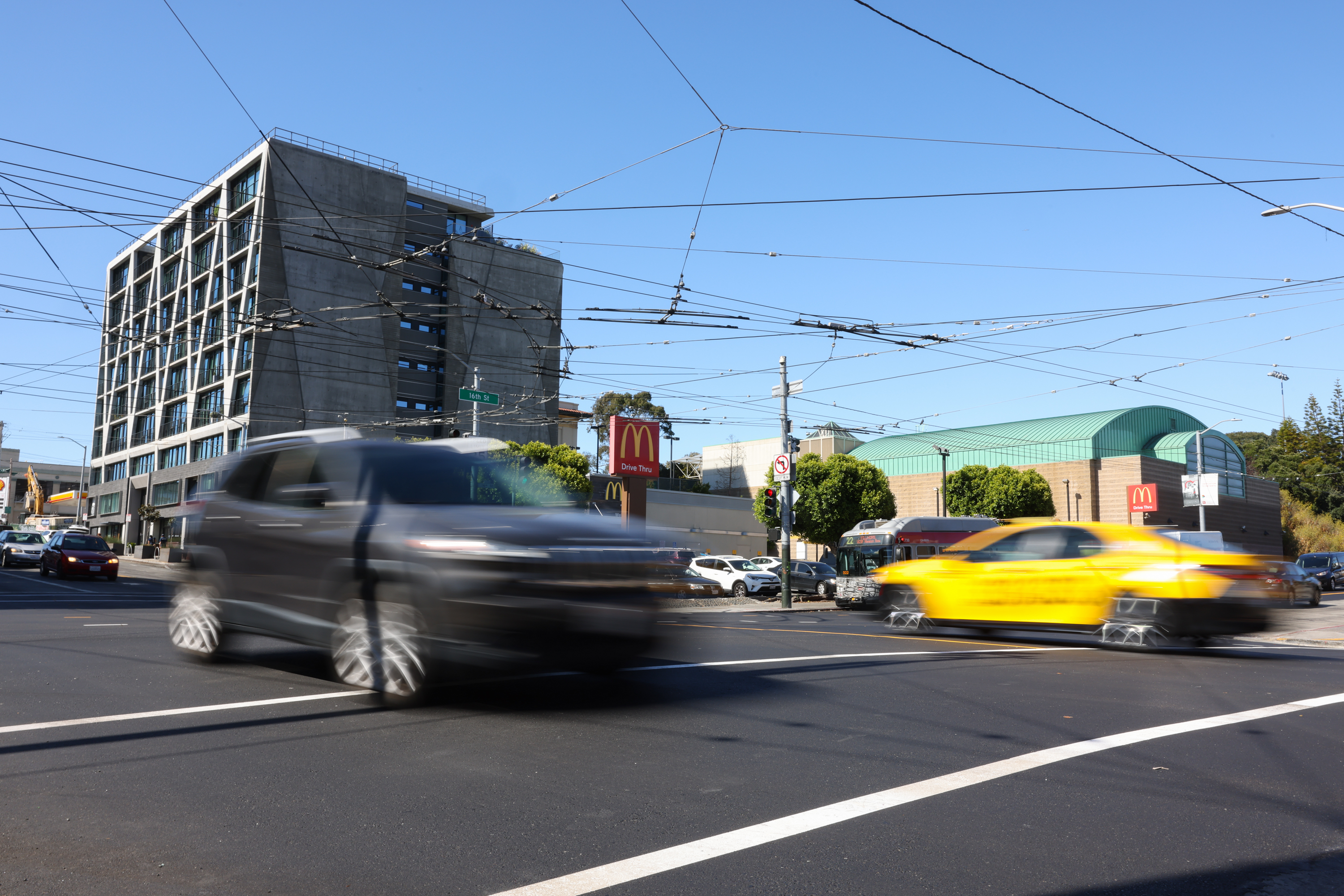San Francisco’s fastest drivers will be more closely monitored—and ticketed—in the years to come after Gov. Gavin Newsom signed legislation Monday that will allow the city to roll out nearly three dozen new speed cameras in dangerous traffic areas.
Starting next year, the new law allows San Francisco and five other cities—Los Angeles, San Jose, Oakland, Glendale and Long Beach—to establish a five-year pilot program for speed cameras until 2032. Each jurisdiction will need to create a speed safety policy and impact report before implementing the program to ensure the cameras are equitably deployed to the most dangerous areas while also protecting personal privacy.
Traffic enforcement has become nearly nonexistent in San Francisco while the city is coming off its deadliest year for traffic-related fatalities—39 total in 2022—since instituting its Vision Zero policy, according to a local reporting project. Sixteen traffic-related fatalities have been reported so far this year. Local officials noted in a statement Monday that speed safety cameras are proven to reduce speeding, collisions and fatalities.
San Francisco will be able to install up to 33 cameras and the cost of tickets under the new law will increase depending on how fast a camera catches someone going over the speed limit:
- $50 for driving 11 to 15 mph over the posted speed limit.
- $100 for driving 16 to 25 mph over the posted speed limit.
- $200 for driving 26 mph or more over the posted speed limit up to 99 mph.
- $500 for driving 100 mph or more.
Mayor London Breed issued a statement Monday calling the speed camera legislation “another critical tool” for street safety in the city.
“Enforcement must be part of our work to make our streets safer, and speed cameras can be a key part of that work,” Breed said.
Jeffrey Tumlin, the city’s director of transportation, championed AB 645—authored by Assemblymember Laura Friedman (D-Burbank)—and noted in a statement that speed cameras can reduce fatalities by as much as 50%.
“We have been eager and ready to use this tool in San Francisco,” Tumlin said, “and transparency will be at the forefront of our rollout.”
